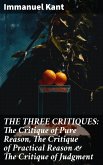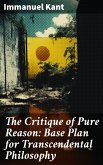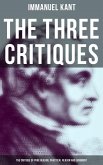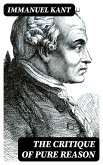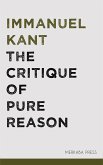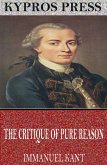Immanuel Kant's "The Critique of Pure Reason" is a pivotal work in Western philosophy that meticulously examines the relationship between human experience and knowledge. Written in a dense yet eloquently rational style, Kant presents his groundbreaking ideas on metaphysics, epistemology, and the limits of human reason. The book delves into the nature of perception and understanding, positing that while our experiences are shaped by sensory input, our cognitive faculties impose inherent structures that govern our understanding of reality. This seminal text emerged during the Enlightenment, a period characterized by a burgeoning confidence in human reason and a re-evaluation of traditional metaphysical notions. Kant, born in 1724 in Kv¿nigsberg, Prussia, was influenced by his background in mathematics, physics, and the rationalist and empiricist traditions. His desire to reconcile the empiricist's emphasis on experience with the rationalist's focus on innate ideas provoked him to explore the fundamental faculties of knowledge. Encapsulating the complexities of human understanding and the very limits of reason, Kant's work became a cornerstone for later philosophical inquiry, challenging scholars and laypersons alike to reconsider the foundations of human cognition. For readers keen to explore the complexities of knowledge and the interplay between perception and reality, "The Critique of Pure Reason" is an essential resource. Kant'Äôs meticulous arguments and innovative theories beckon those who seek to engage with profound philosophical questions, making this work a crucial text for anyone interested in the evolution of thought from the Enlightenment to contemporary philosophy.
Dieser Download kann aus rechtlichen Gründen nur mit Rechnungsadresse in A, B, BG, CY, CZ, D, DK, EW, E, FIN, F, GR, H, IRL, I, LT, L, LR, M, NL, PL, P, R, S, SLO, SK ausgeliefert werden.



